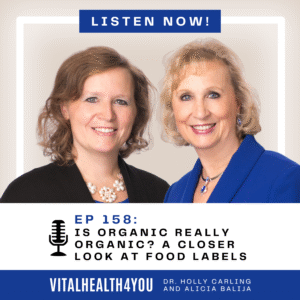With more than 15 million Americans on prescriptions for heartburn and reflux, and many more on over-the-counter (OTC) medications, we can say we have a real problem here!
We need to digest what we consume, period. The foods we eat are intended to build tissues and bone, and repair damaged or diseased tissues or organs. We need them for keeping warm, for immune system function, for our heart to beat, to make hormones and everything else to run our body. Every organ in the body is dependent upon minerals to function. For example, we need iodine for the thyroid to function, chromium for the pancreas and calcium for the heart.
If you are building a house and you are missing essential materials, such as wood, you could still build a house out of the other materials, such as sheet rock, but it won’t be a good house. It won’t do what it is intended to do, it won’t have the structural integrity and therefore will crumble in the face of natural or unnatural stresses. If we are not digesting and getting the essential materials (nutrients) for function and repair, is it any wonder that our health declines?
The nutrients not only have to be in the diet, but they have to make it to where they are needed in the body. Heartburn and reflux are indications that digestion is in trouble. Since these can eventually lead to esophageal cancer, it is not to be taken lightly, and should not be ignored. Heartburn or reflux, occurring more than 3 times per week, needs to be addressed.
The best way to address it is to correct the underlying reason why you have it. There can be several reasons, so it is important to find out for sure what the cause is for you. What I don’t recommend, except in a few cases, is medications. Two primary medications, Proton Pump Inhibitors (PPIs) and H2 Blockers are the most commonly prescribed. Grouping the important acid stomach enzymes (that are supposed to be acidic) with acids released as a result of poorly digested food (the bad acids), these medications work by blocking or reducing the production of all acids, good and bad, including the very enzymes necessary to digest your food.
PPIs are stronger and include anything that ends with “prazole” – omeprazole (Prilosec), pantoprazole (Protonix), esomeprazole (Nexium). H2 blockers include ranitidine (Zantac), Pepcid, Tagamet and their generic names. Common antacids include calcium carbonate or Magnesium to absorb acids (Tums, Rolaids, Mylanta, Maalox, Milk of Magnesia).
PPIs are stronger, followed by H2 blockers, then the safest OTC are antacids. This order also follows the most dangerous. PPIs and H2 blockers are now linked to “unnecessary” death and disease. While there is place for these medications, from the beginning it was advised that they be used for no longer than 14 days. Yet physicians prescribe them for months and years. There lacks appropriate follow-up to take patients off them when risk of ulcers (the primary use of them) has passed.
Following a study by Washington University School of Medicine in St. Louis and Veterans Affairs St. Louis Health Care System, the alarm was rung about these medications and the significant increase in fatal cases of cardiovascular disease, chronic kidney disease (and failure) and upper gastrointestinal cancer. This follows other studies by researchers at Johns Hopkins University and Harvard Medical School, the later reporting that PPIs are associated with reduced vitamin and mineral absorption (especially Vitamin B12, magnesium and calcium), and an increased risk of hip fractures, pneumonia “and other life-threatening infections.” In all cases, these medical institutions found that the risk was high even at low doses, and state that the longer they are taken, the greater the risk. So what should we do? Fix the problem rather than mask it with potentially dangerous meds. But whatever you do, do something! Don’t ignore it.
©2019 Holly A. Carling, O.M.D., L.Ac., Ph.D.







